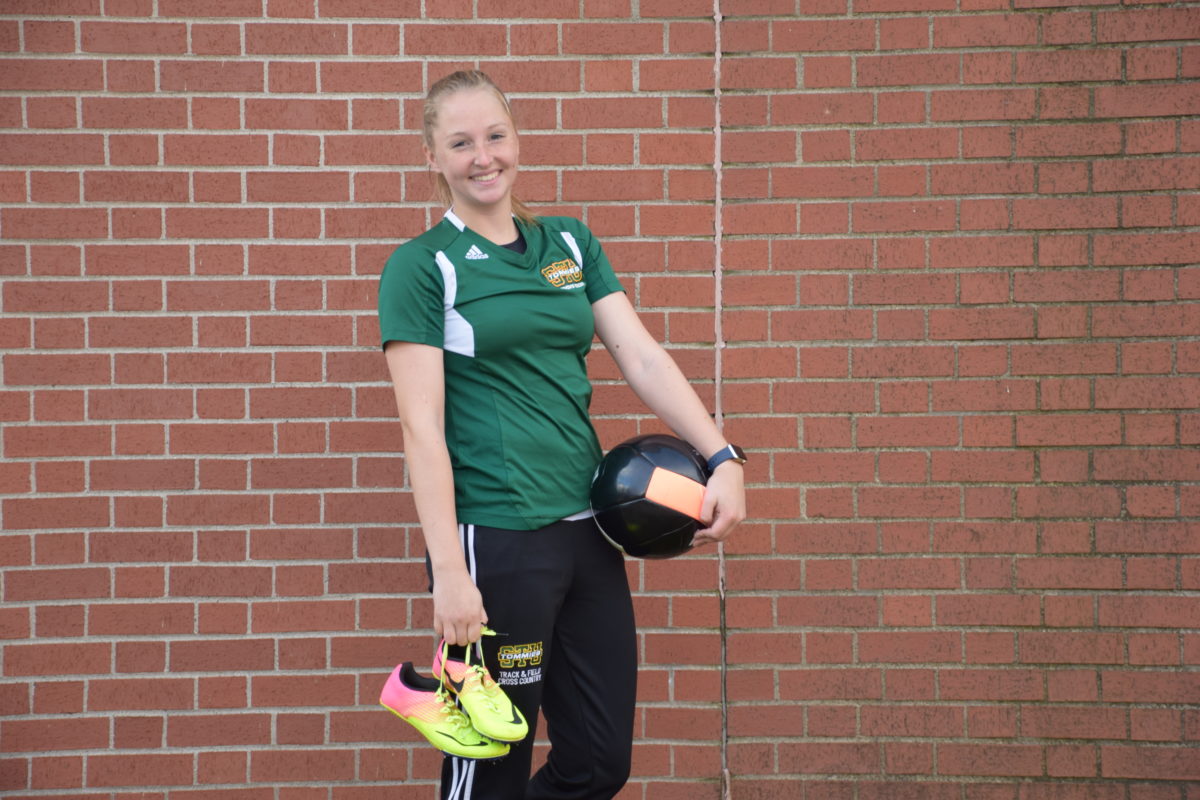
Being a student athlete requires a lot of time management skills and commitment. Being a multi-sport athlete requires double that.
Many St. Thomas University athletes generally stick to playing just one sport. Some decide that one just isn’t enough.
Sarah Hickman is on the women’s soccer team and runs on the track and field team. She says that being a multi-sport athlete isn’t easy, but she hasn’t known any other way since coming to STU.
“You have to be able to schedule yourself around two practices for two different sports a week … plus school,” said Hickman.
She says as a soccer player, she is expected to train and keep in shape all year long. She also plays indoor soccer once a week, practices track twice a week and works out multiple times a week throughout the winter season.
STU athletics director Mike Eagles says the most common and easiest thing for multi-sport athletes is to play a fall sport and then be on the track and field team.
There are no rules from the athletics department on playing multiple sports. However, Eagles says many coaches have their own rules surrounding commitment to the teams.
So far, there has been no coach backlash that he has heard of, but Hickman says one of her coaches doesn’t like that she is on two teams.
Eagles says while he has no problem with athletes playing multiple sports, he doesn’t want to see all of the athletes pick it up.
“We want our athletics department and our teams to be recruiting or to add to the enrollment at St. Thomas University,” said Eagles.
“So, for me it’s not an ideal situation to have a bunch of multi-sport athletes when the better scenario is you would have a bunch of recruited athletes for one sport and then a bunch of recruited athletes for another sport.”
He says over the past few years there have only been a few students who have successfully been on two sports teams. A few years ago, there were some that did soccer and volleyball, which isn’t easy as the seasons overlap quite a bit.
Some of the players on the teams feel players joining the teams late can put them at a disadvantage.
Laura Whitty was a thrower on the track and field team last year and says that some of the players who joined later in the season were not fully committed.
“I felt like it was unfair that others joined the team late especially since they had no experience in the sport. They already played a sport, so it didn’t seem all that fair to me,” said Whitty.
She felt her learning was hindered because her coach couldn’t spend as much time teaching her, having to get the latecomers caught up.
“The team’s morale was put at a disadvantage since not all of the joining members were committed. We couldn’t really tell who was on the team at one time,” said Whitty.
“At meets, we were not put at a disadvantage as everyone who went had a positive and supportive attitude.”
Eagles says he is supportive of multi-sport athletes, but says it’s an issue he has to keep in the back of his mind at all times.
“If doing two sports is going to enhance someone’s student athlete’s experience at St. Thomas and they really want to do it, then I’m 100 per cent supportive, but ideally … we have a better chance of adding to enrollment if we have sports-specific athletes that have been recruited by the coaches.”
